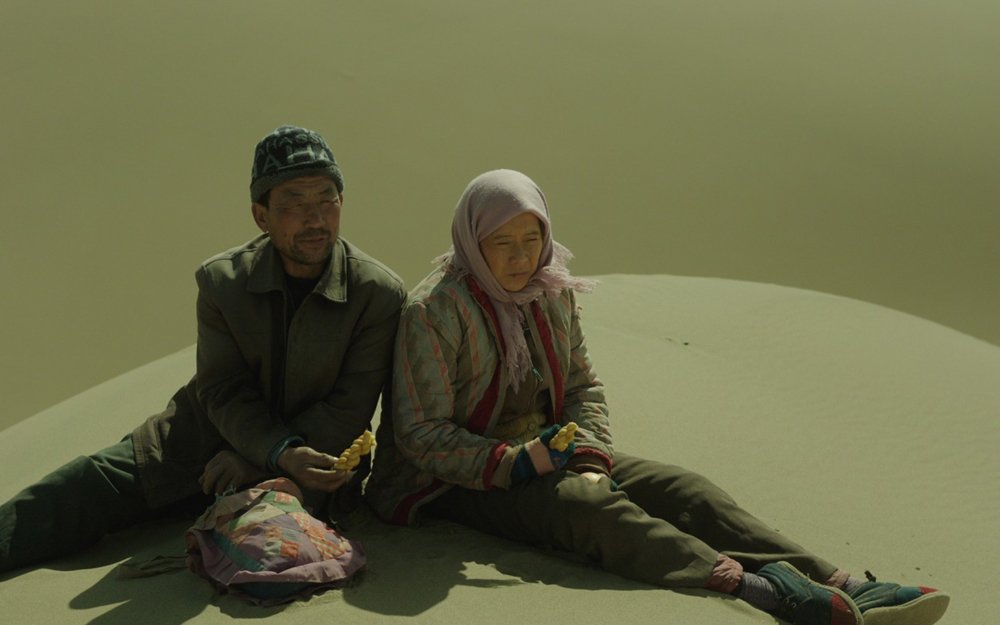The photo taken just after Guiying (Hai Qing) and Iron (Wu Renlin) marry is not one either will want to remember in “Return to Dust,” Li Ruijun’s lovely drama in which a marriage of convenience grows into one of actual love. Neither are shown much by their respective families in a small village of Gaotai where Iron, simply referred to within his family as Fourth Brother, tends to his brother’s farm and more comfortable outside eating with a donkey as his relatives discuss inside the house a potential wedding to Guiying, who is seen as a burden by her parents when abuse suffered at the hands of her brother and sister-in-law years earlier resulted in physical injury so great she’s unable to have children and suffers from embarrassing bladder control issues. With Iron’s family committing money to the wedding of another of their sons, the two don’t only see themselves as outcasts within their community where both are relentlessly teased, particularly Guiying about her condition follows wherever she goes, but from any relatives they have.
It is a subtle but spicy irony that when the couple is all but cut off from their bloodlines, the community still needs Iron’s when Zhang Yongfu, the town’s local government emissary, requires transfusions of a rare type that only he can supply, and at the risk of making Iron into a martyr, Li takes the longview of a country undergoing such a great cultural shift, envisioning the selfless sacrifices made by the central county and their willingness to stay in the small village while many are incentivized to move to the cities as both admirable and quaint. Iron’s selflessness is mocked by others when Zhang drives around town in a BMW, surely meaning he could make money off his blood, and he is kicked out of his home when his brother is offered 15,000 yuan to clear the land their house is on by the village committee, but unswayed by how others have taken advantage of him for their own profit, he and Guiying seize the opportunity to build their own farm from the ground up, raising chickens from eggs and planting corn crops on a small parcel of land where no one thinks to bother them.
“Return to Dust” is beautiful to look at well before Iron uses the box intended as an incubator for the chickens as a makeshift light carousel for Guiying by placing a candle inside, but the combination of the kindness on display and Weihua Wang’s elegant camerawork, always conscious of Guiying and Iron’s place in the world in strong, unfussy compositions, proves irresistible. Although their maladies are exaggerated for effect, the gradual warming of Guiying and Iron to one another is nicely understated and Hai and Wu may play largely introverted characters, but how they express the impact the other has on them speaks volumes. While “Return to Dust” envisions an entire country in microcosm, it also reflects how a relationship can open up the entire world and in a place where it feels like there’s little love left for those like Guiying and Iron, Li shows that hardly means there isn’t any out there.
“Return to Dust” will screen at Berlinale on February 15th at 2 pm and February 16th at 5:30 pm at Cubix 9, February 18th at 5:30 pm at Urania and February 19th at 5 pm at International.




